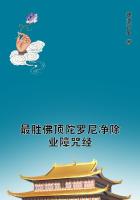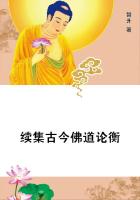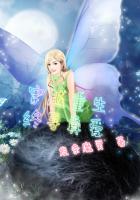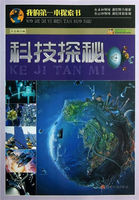"Ask your grandfather Niseron; you have not given him up, poor dear man, and he'd be pleased to see you admired like a little queen.Why do you like those Arminacs the Michauds better than your grandfather and the Burgundians.It's bad to neglect your own people.Besides, why should the Michauds object if your grandfather takes you to the fair?
Oh! if you knew what it is to reign over a man and put him beside himself, and say to him, as I say to Godain, 'Go there!' and he goes, 'Do that!' and he does it! You've got it in you, little one, to turn the head of a bourgeois like that son of Monsieur Lupin.Monsieur Amaury took a fancy to my sister Marie because she is fair and because he is half-afraid of me; but he'd adore you, for ever since those people at the pavilion have spruced you up a bit you've got the airs of an empress."
Adroitly leading the innocent heart to forget Nicolas and so put it off its guard, Catherine distilled into the girl the insidious nectar of compliments.Unawares, she touched a secret wound.La Pechina, without being other than a poor peasant girl, was a specimen of alarming precocity, like many another creature doomed to die as prematurely as it blooms.Strange product of Burgundian and Montenegrin blood, conceived and born amid the toils of war, the girl was doubtless in many ways the result of her congenital circumstances.
Thin, slender, brown as a tobacco leaf, and short in stature, she nevertheless possessed extraordinary strength,--a strength unseen by the eyes of peasants, to whom the mysteries of the nervous system are unknown.Nerves are not admitted into the medical rural mind.
At thirteen years of age Genevieve had completed her growth, though she was hardly as tall as an ordinary girl of her age.Did her face owe its topaz skin, so dark and yet so brilliant, dark in tone and brilliant in the quality of its tissue, giving a look of age to the childish face, to her Montenegrin origin, or to the ardent sun of Burgundy? Medical science may dismiss the inquiry.The premature old age on the surface of the face was counterbalanced by the glow, the fire, the wealth of light which made the eyes two stars.Like all eyes which fill with sunlight and need, perhaps, some sheltering screen, the eyelids were fringed with lashes of extraordinary length.The hair, of a bluish black, long and fine and abundant, crowned a brow moulded like that of the Farnese Juno.That magnificent diadem of hair, those grand Armenian eyes, that celestial brow eclipsed the rest of the face.The nose, though pure in form as it left the brow, and graceful in curve, ended in flattened and flaring nostrils.Anger increased this effect at times, and then the face wore an absolutely furious expression.All the lower part of the face, like the lower part of the nose, seemed unfinished, as if the clay in the hands of the divine sculptor had proved insufficient.Between the lower lip and the chin the space was so short that any one taking La Pechina by the chin would have rubbed the lip; but the teeth prevented all notice of this defect.One might almost believe those little bones had souls, so brilliant were they, so polished, so transparent, so exquisitely shaped, disclosed as they were by too wide a mouth, curved in lines that bore resemblance to the fantastic shapes of coral.The shells of the ears were so transparent to the light that in the sunshine they were rose-colored.The complexion, though sun-burned, showed a marvellous delicacy in the texture of the skin.If, as Buffon declared, love lies in touch, the softness of the girl's skin must have had the penetrating and inciting influence of the fragrance of daturas.The chest and indeed the whole body was alarmingly thin; but the feet and hands, of alluring delicacy, showed remarkable nervous power, and a vigorous organism.
This mixture of diabolical imperfections and divine beauties, harmonious in spite of discords, for they blended in a species of savage dignity, also this triumph of a powerful soul over a feeble body, as written in those eyes, made the child, when once seen, unforgettable.Nature had wished to make that frail young being a woman; the circumstances of her conception moulded her with the face and body of a boy.A poet observing the strange creature would have declared her native clime to be Arabia the Blest; she belonged to the Afrite and Genii of Arabian tales.Her face told no lies.She had the soul of that glance of fire, the intellect of those lips made brilliant by the bewitching teeth, the thought enshrined within that glorious brow, the passion of those nostrils ready at all moments to snort flame.Therefore love, such as we imagine it on burning sands, in lonely deserts, filled that heart of twenty in the breast of a child, doomed, like the snowy heights of Montenegro, to wear no flowers of the spring.
Observers ought now to understand how it was that La Pechina, from whom passion issued by every pore, awakened in perverted natures the feelings deadened by abuse; just as water fills the mouth at sight of those twisted, blotched, and speckled fruits which gourmands know by experience, and beneath whose skin nature has put the rarest flavors and perfumes.Why did Nicolas, that vulgar laborer, pursue this being who was worthy of a poet, while the eyes of the country-folk pitied her as a sickly deformity? Why did Rigou, the old man, feel the passion of a young one for this girl? Which of the two men was young, and which was old? Was the young peasant as blase as the old usurer?
Why did these two extremes of life meet in one common and devilish caprice? Does the vigor that draws to its close resemble the vigor that is only dawning? The moral perversities of men are gulfs guarded by sphinxes; they begin and end in questions to which there is no answer.















